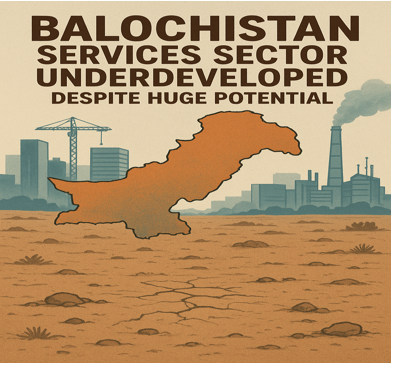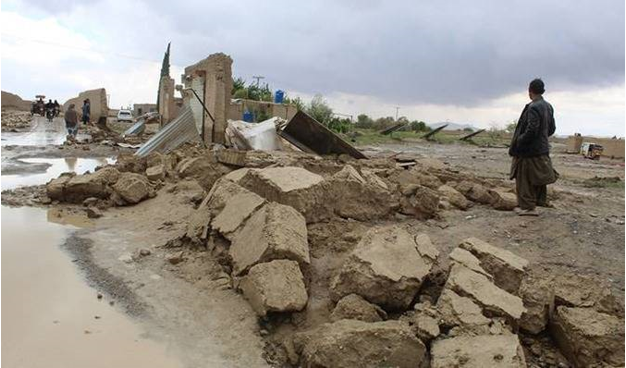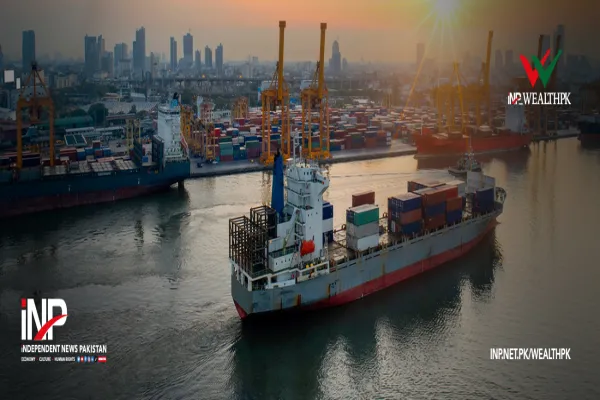i INP-WEALTHPK
Ahmed Khan Malik
The services sector in Balochistan has been underdeveloped despite holding immense potential due to various reasons ranging from limited infrastructure, policy flaws and security issues.

Balochistan has long been recognised for its rich mineral wealth, strategic location, and vast coastline. However, from tourism and hospitality to information technology and finance, the province also holds immense potential.
The services sector plays a leading role in job creation and GDP contribution. In Pakistan as a whole, services account for more than half of the national economy. In Balochistan, however, the share is disproportionately low, lagging behind agriculture, livestock, and mining. This imbalance has prevented the province from fully integrating into the country’s economic mainstream.

Economists point out that services like transport, logistics, education, healthcare, retail, and financial intermediation could be transformative for Balochistan. “Balochistan’s future depends not only on extracting minerals or fishing along the coast,” said Shahid Karim, a financial analyst.
Speaking to Wealth Pakistan, he noted that the province’s future also depends on how well it can build supporting services — banking, insurance, IT, hospitality — that keep the wheels of the economy turning.
Karim noted from the beaches of Gwadar and Ormara to the Hingol National Park, Ziarat’s juniper forests, and the caves of Hinglaj, the province has the potential to attract both domestic and international tourists. Yet poor road networks, lack of hotels, and security challenges have kept visitor numbers low, he pointed out.
He stated that every winter, people want to come and see snowfall here. But when they arrive, there are hardly any proper facilities — no standard hotels, guided tours, or local transport. Most leave disappointed, and that hurts the province’s image, he noted. “If properly developed, tourism services could generate thousands of jobs for local youth, boost small businesses, and improve Balochistan’s overall perception,” he said.
The services sector also includes vital areas like education and healthcare, both of which remain underdeveloped in Balochistan. The province has some of the lowest literacy and enrollment rates in the country. Similarly, healthcare services are limited to urban centres, leaving rural populations underserved.
“Improving education and healthcare is not only a social necessity but also an economic one. A healthier and more educated workforce can support the growth of other service industries, particularly IT and skilled professions,” said Fida Hussain, an economist in Quetta.
Speaking to Wealth Pakistan, he said that perhaps the most promising area for Balochistan’s services sector is logistics and transport. However, he noted that challenges remain daunting despite this potential.
“Security issues, inadequate infrastructure, and lack of investment have deterred private players. Policy inconsistencies and weak provincial capacity for planning further compound the problem. Moreover, many service industries require skilled labour, which is in short supply due to limited vocational training opportunities.”
Fida believed that without targeted government intervention and incentives for the private sector, Balochistan’s services sector would continue to lag. If harnessed properly, the services sector could become the backbone of Balochistan’s economy, providing employment opportunities far beyond what mining or agriculture can offer, he noted.
“By investing in tourism, education, healthcare, logistics, and IT, the province can create a more balanced and sustainable growth model,” the economist underscored.
Credit: INP-WealthPk






